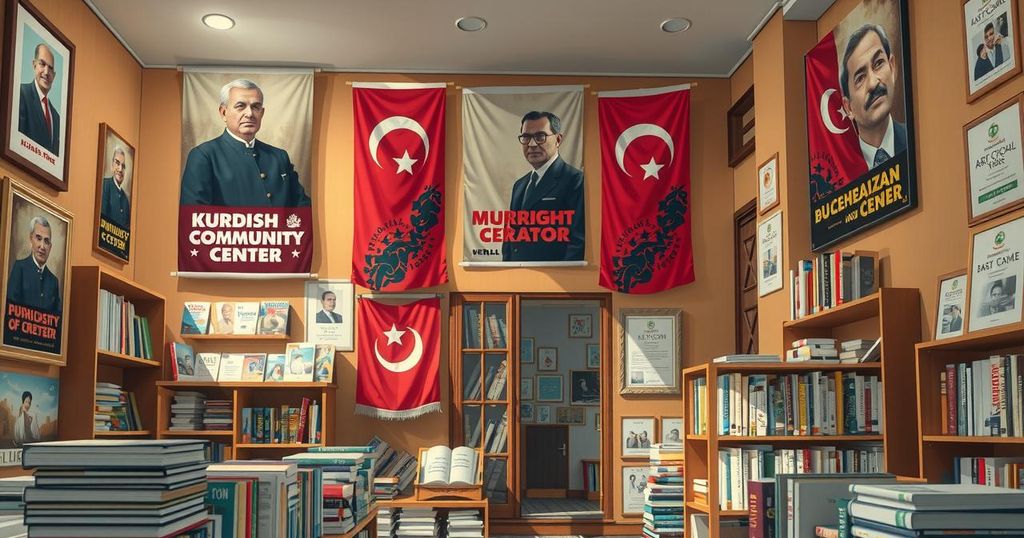The PKK’s Financial Networks Impact on Turkish Peace Efforts
The PKK maintains a substantial financial network in Europe, leveraging community support for fundraising and employing coercion for revenues. This has significant implications for peace negotiations with Turkey. Ocalan’s recent peace appeals are met with skepticism regarding the PKK’s willingness to disarm, amidst ongoing scrutiny of the group’s fundraising tactics and illicit activities.
The Kurdistan Workers’ Party (PKK), as detailed by Dutch sociologist Joost Jongerden, possesses not only significant support in Europe but also a substantial financial network. This network poses a potential obstacle to peace negotiations with Turkey. Jongerden highlighted the PKK’s strategies, which include canvassing for donations from the Kurdish diaspora and employing a so-called “revolutionary tax,” raising funds through various means, including leveraging natural disasters for donations.
The organization’s infiltration into community centers allows it to spread the ideology of imprisoned leader Abdullah Ocalan while staging rallies and producing propaganda films. Despite Turkish pressures on European nations to counteract the PKK, its proponents continue to advocate for recognizing their armed struggle as a quest for independence. However, doubts remain about the PKK’s ability to genuinely disarm, given its history and existing financial motives, as noted by Richard Outzen, a former U.S. Army colonel.
Details from court cases in France reveal a structured method of “tax” collection that includes coercion. Operatives exert pressure on reluctant donors, leading to threats and violence against those resisting contributions. A recent high-profile case in Sweden, involving a kidnapping for ransom, underscored the group’s extensive fundraising mechanisms and the intense scrutiny from Turkish authorities pushing for action against PKK operatives in Europe.
The PKK thrives financially through a combination of extortion and grassroots fundraising, orchestrating events across Europe while maintaining a political agenda that aligns closely with Ocalan. This shift in narrative, focusing on local self-governance rather than an independent state, has further integrated their operations within Kurdish communities. Such dynamics serve to complicate the Turkish government’s responses and strategies, as the PKK continues to be a formidable entity with deep-rooted financial support.
Internationally, the PKK is also associated with illicit activities, including drug trafficking. While Turkey alleges significant revenue generation through this means, assessments by Europol indicate that the PKK’s funding primarily stems from a broad range of illegal activities, raising further questions about the group’s operations. Despite being classified as a terrorist organization in the EU, ongoing debates around its legitimacy persist, reflecting a divide between perceptions in Turkey and the Western view of the Kurdish struggle for rights and recognition.
Ocalan’s recent calls for the PKK to dissolve and cease armed conflict mark a pivotal moment for the group, although his influence remains contentious. European Kurdish organizations responded enthusiastically to his appeal, marking it a historic opportunity for addressing Kurdish issues democratically. Nevertheless, the overarching narrative crafted by the PKK incorporates elements of conflict and community that may delay any potential ceasefire with Turkey.
In summary, the PKK’s entrenched financial and operational network in Europe underscores its resilience amid ongoing tensions with Turkey. The complex web of fundraising through community engagement, coupled with allegations of criminality, paints a multifaceted picture of the organization’s strategies. As Abdullah Ocalan’s recent appeals for peace challenge the PKK’s identity, significant doubts about disarmament linger, compelling ongoing scrutiny from both Turkish authorities and European nations, where the PKK’s narrative continues to resonate profoundly within Kurdish communities.
Original Source: www.thenationalnews.com




Post Comment